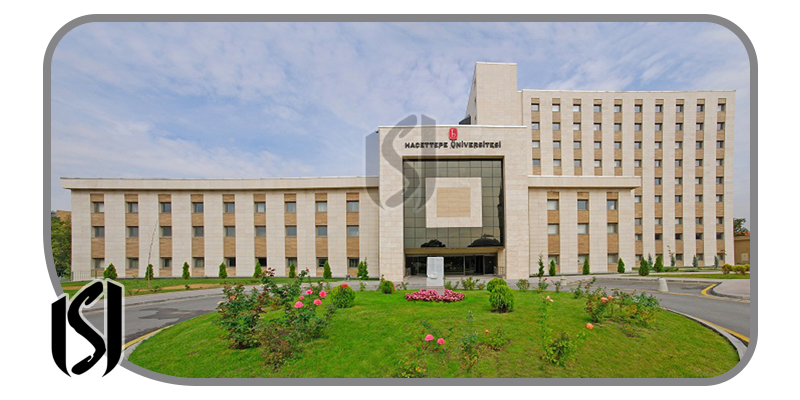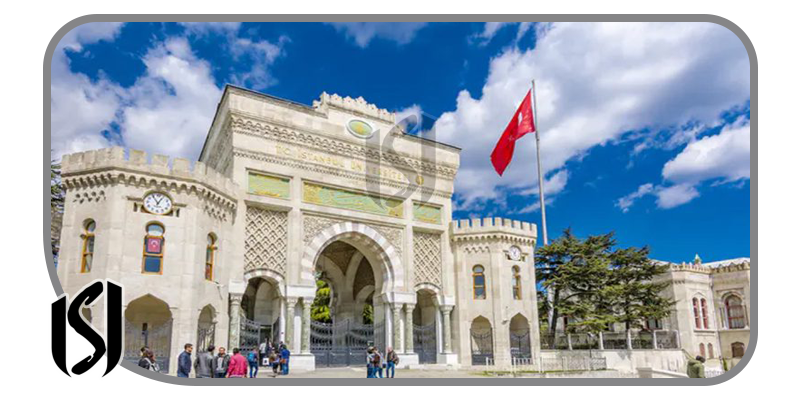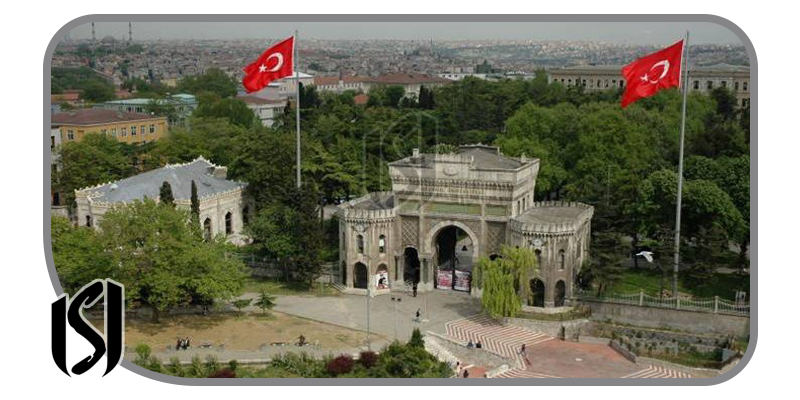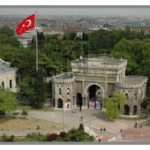
Turkish universities reputation.
- هلدینگ ترکیه با ما
- مارس 6, 2023
- BlogEN
- Private Universities, Public Universities, Reputable universities in Turkiye, universities
- 0 دیدگاه
The reputation of Turkish universities among international universities
The reputation of Turkish universities varies among international universities and rankings. Some Turkish universities are well-regarded and highly ranked in certain fields, while others may have a lower profile.
According to the QS World University Rankings 2022, the highest-ranked Turkish university is Bilkent University, which is ranked 417th in the world. Other Turkish universities that are ranked in the top 1000 include Sabanci University, Koç University, Bogazici University, Istanbul Technical University, and Middle East Technical University.
In addition to the QS rankings, Turkish universities also feature in other international rankings such as the Times Higher Education World University Rankings, the ShanghaiRanking’s Global Ranking of Academic Subjects, and the U.S. News & World Report Best Global Universities Rankings.
Overall, while Turkish universities may not yet have the same level of global recognition and prestige as universities in some other countries, many of them are making strides to improve their research output, academic programs, and international collaborations.
Reputable universities in Turkiye
There are many reputable universities in Turkiye, with a range of specialties and strengths. Some of the top universities in Turkiye, according to various international rankings and reputation surveys, include:
Bilkent University
Boğaziçi University
Middle East Technical University (METU)
Koç University
Sabancı University
Istanbul Technical University (ITU)
Hacettepe University
Ankara University
İstanbul University
Ege University
It’s important to note that this list is not exhaustive, and there are many other excellent universities in Turkiye that are not included here. Additionally, each university has its own unique strengths and areas of expertise, so it’s worth researching and exploring different options to find the best fit for your academic interests and career goals.
What are the conditions for studying in Turkish universities for foreign students?
The conditions for studying in Turkish universities for foreign students depend on the individual university and the student’s level of study (undergraduate, graduate, etc.). However, there are some general requirements and conditions that most universities in Turkiye have for international students. These may include:
Meeting the academic requirements: Students must have a certain level of academic achievement, such as completing high school or having a bachelor’s degree, depending on the program they are applying for.
Proficiency in Turkish or English: Most universities in Turkiye offer programs in Turkish or English, so students must have a certain level of proficiency in the language of instruction. Some universities may also offer language courses or proficiency tests.
Valid student visa: International students must obtain a student visa from the Turkish embassy or consulate in their home country before traveling to Turkiye.
Health insurance: Students must have health insurance that is valid in Turkiye.
Tuition fees: International students usually have to pay higher tuition fees than domestic students. Scholarships and financial aid may be available for some students.
Residence permit: After arriving in Turkiye, international students must apply for a residence permit within a certain period of time. This permit is valid for the duration of their studies.
It’s important to note that specific requirements and conditions may vary by university and program, so it’s a good idea to check with the university’s international office or admissions department for more information

Turkish universities list
Turkish public and private universities Here are some public and private universities in Turkiye:
Public Universities:
Ankara University
Istanbul University
Middle East Technical University (METU)
Bilkent University
Istanbul Technical University
Hacettepe University
Sabanci University
Bogazici University
Ege University
Dokuz Eylul University
Private Universities:
Koc University
Bilkent University
Sabanci University
Bilgi University
Bahcesehir University
Istanbul Bilgi University
Yeditepe University
Ozyegin University
Kadir Has University
Izmir University of Economics.
Please note that this is not an exhaustive list and there may be other universities in Turkiye that are not included here.

What are the conditions for studying in Turkish public universities for foreign students?
Foreign students who wish to study in Turkish public universities are required to meet certain conditions. Here are some of the general requirements:
Language Proficiency:
Students must have a good command of the Turkish language or the language of instruction of the program they are applying for. Most universities require students to provide proof of their language proficiency, such as a language proficiency certificate or a language exam score.
Academic Qualifications:
Students must have completed their secondary education or equivalent and meet the minimum academic requirements set by the university they are applying for. Generally, a high school diploma or an equivalent degree is required.
Visa Requirements:
Students must obtain a student visa before they can enter Turkiye for their studies. This process can vary depending on the country of origin and the specific program the student is applying for.
Tuition Fees:
International students are generally required to pay tuition fees to attend public universities in Turkiye. However, these fees may vary depending on the university, the program, and the student’s nationality.
Other Requirements:
Some universities may have additional requirements such as entrance exams or interviews, so it is important to check with the university or program for specific requirements.
It is recommended that students consult with the university they wish to attend to obtain detailed information about the admission requirements and application process.
What are the conditions for studying in private universities in Turkiye?
The conditions for studying in private universities in Turkiye may vary depending on the specific university and program. However, here are some general requirements:
Language Proficiency:
Students must have a good command of the language of instruction of the program they are applying for. Most universities require students to provide proof of their language proficiency, such as a language proficiency certificate or a language exam score.
Academic Qualifications:
Students must have completed their secondary education or equivalent and meet the minimum academic requirements set by the university they are applying for. Generally, a high school diploma or an equivalent degree is required.
Visa Requirements:
Students must obtain a student visa before they can enter Turkiye for their studies. This process can vary depending on the country of origin and the specific program the student is applying for.
Tuition Fees:
Private universities in Turkiye generally charge tuition fees, which can vary depending on the university, the program, and the student’s nationality.
Other Requirements:
Some universities may have additional requirements such as entrance exams or interviews, so it is important to check with the university or program for specific requirements.
It is recommended that students consult with the private university they wish to attend to obtain detailed information about the admission requirements and application process
What is the minimum capital required to buy a property in Turkiye?
Buying property in Turkiye can be a great investment opportunity for foreign buyers.
However, there are several factors to consider before making a purchase. The minimum capital required to buy a property in Turkiye depends on the location, size, and type of property you wish to buy. Additionally, you should also factor in other expenses, such as taxes, legal fees, and property management fees.
Foreigners can purchase property in Turkey without any restrictions, but there are some legal requirements that need to be met. For example, you will need to obtain a tax number, open a bank account, and acquire a residence permit. You may also need to hire a real estate agent, who can help you navigate the legal requirements and find the right property for your needs.
For more information on how to buy property in Turkiye, please contact the WITH US department.

It’s important to do your research before buying property in Turkiye, as the real estate market can be subject to fluctuations. The value of a property may increase or decrease due to changes in the market. Therefore, it’s important to seek advice from various sources, such as real estate agents, independent lawyers, and other information resources.
Overall, buying property in Turkiye can be a great investment opportunity for foreign buyers. However, it’s a complex and time-consuming process that requires careful consideration. With sufficient knowledge and by relying on trusted sources, such as information resources and real estate agents, you can make your property purchase in Turkiye a success.
Of course, I’m happy to provide more information!
When purchasing a property in Turkiye, it’s important to keep in mind that the location of the property will have a significant impact on its value. Properties in popular tourist areas or major cities, such as Istanbul, may be more expensive than those in rural areas. Additionally, the type of property you want to buy, whether it’s a villa, apartment, or commercial property, will also affect the price.
It’s also important to factor in the costs associated with owning a property in Turkiye. For example, you will need to pay property taxes, which are typically 0.1% to 0.2% of the property’s value. There are also maintenance costs, which will vary depending on the size and type of property. If you plan to rent out the property, you’ll need to factor in property management fees as well.
As a foreign buyer, you will also need to obtain a Turkish tax number, which can be done at any tax office. You’ll also need to open a Turkish bank account, as all property transactions must be done through a Turkish bank. Finally, if you plan to stay in Turkiye for an extended period of time, you’ll need to apply for a residence permit.
Overall, buying property in Turkiye can be a great investment opportunity for foreign buyers. However, it’s important to do your research and carefully consider all factors before making a purchase. By working with trusted sources, such as real estate agents and lawyers, you can ensure a smooth and successful property purchase in Turkiye.
Certainly! Here are a few more important things to consider when buying property in Turkiye:
Legal Requirements: As a foreigner, it’s important to ensure that all legal requirements are met when purchasing property in Turkiye. For example, you’ll need to obtain a title deed, or “tapu” in Turkish, which is the official document that proves ownership of the property. You’ll also need to hire a lawyer to review the purchase agreement and ensure that everything is legal and above board.
Financing: If you’re not able to pay for the property outright, you may need to secure financing. In Turkiye, it’s possible to obtain a mortgage as a foreigner, but the process can be complex and time-consuming. You’ll need to have a good credit score and provide extensive documentation to the bank
Rental Potential:
If you’re purchasing the property as an investment, it’s important to consider the rental potential. Turkiye is a popular tourist destination, and properties in popular areas can be rented out for significant income. However, you’ll need to consider factors such as competition from other rental properties, peak tourist seasons, and local rental laws.
Resale Potential:
It’s important to consider the resale potential of the property before making a purchase. While the Turkish real estate market has been stable in recent years, there’s always the potential for fluctuations in the market. It’s important to consider the location, size, and condition of the property, as well as the potential for future development in the area.
Cultural Differences:
Finally, it’s important to be aware of cultural differences when purchasing property in Turkiye. For example, the process of purchasing property in Turkiye may be different from what you’re used to in your home country. Additionally, you’ll need to consider the language barrier, as many locals may not speak English. It’s important to work with trusted professionals who can help you navigate these differences and ensure a successful property purchase. I hope this information is helpful


یک دیدگاه ارسال کنید